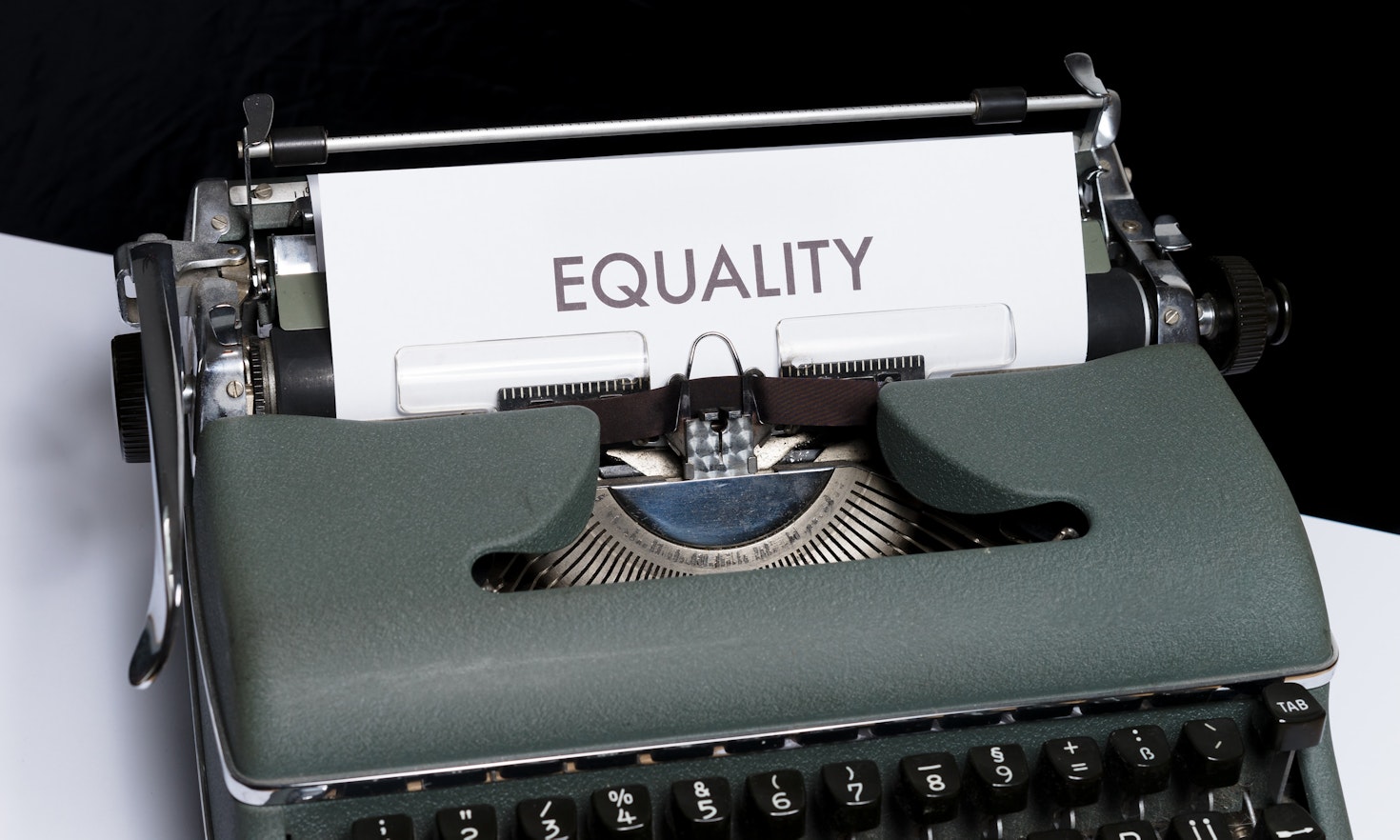
The 11th of all EU-r rights: freedom of expression and how the Charter contributes
 Gabriel Toggenburg
Gabriel Toggenburg
An attentive follower of French politics might have noticed that a presumed dead subject has recently re-emerged at the forefront of political debate in France, almost provoking an internal scandal in the governing party of president Macron: the teaching of regional languages.
In April, a bill championed by the Breton deputy Paul Molac concerning the teaching of regional languages in French Schools by “immersion” (allowing schools to teach for the majority of the day in regional languages), was initially voted by a large majority in the Assemblée Nationale. Subsequently, the education minister, unexpectedly and under quite obscure circumstances, mobilised a group of 60 deputies to appeal to the Conseil Constitutionnel, France’s highest constitutional authority. On May 22, the latter declared the provision on immersive language teaching as unconstitutional, provoking an outcry among the defenders of regional languages in France. During the last weeks, several manifestations with thousands of participants have taken place all over the country.
On the occasion of this sudden flare-up of the language question in France, this post seeks to explain the problematic relationship of French law in regard to its regional languages by comparing it with Italy’s traditional approach to linguistic plurality.
When asking the question about the situation of linguistic minorities in France, the easiest answer one gets is: In France, there are no linguistic (or other) minority groups. However, when taking a closer look to the situation on the ground, things get more complicated. Linguists will tell you that the French “hexagone” is historically characterised by one of the richest linguistic heritages in Europe including speakers of Basque, Corsican, Alsatian, Occitan, Catalan, Provençale, Breton etc. French constitutional law, instead, regards the existence of societal subgroups with a common linguistic (or other) particularity as inconceivable.
Indeed, French constitutionalists point to two aspects in this regard. First, they refer to article 2 of the Constitution, stating that French is the language of the Republic. Second, they refer to the wider concept of the French principle of equality. According to the interpretation by the French Conseil Constitutionnel, the principle is to be read above all in its formal dimension, that is: Everybody is equal before the law; or in more philosophical terms: people who are alike should be treated alike. However, most other European Constitutional traditions also take into account the substantial dimension of equality, based on the second phrase of Aristoteles’ famous conceptualization: people who are unalike, should be treated unalike. Put differently, in order to achieve real equality one has to take into account the specific, differing situations of people and confer accordingly differing rights to them (“positive discrimination”).
However, a detailed analysis of the jurisprudence of the French Conseil Constitutionnel in the last decades shows that it does not seem to attenuate its strictly formal notion of equality. Only in an extremely cautious manner, does it refer to certain circumstances that would allow for differentiation, though not obliging the legislator to take action. This is a fundamental difference in comparison to the Italian Constitutional law, in theory and in practice. Article 3 of the Italian Constitution clearly recognizes both dimensions of equality and the Italian Constitutional Court interpretation also reflects the state’s obligation to actively promote real equality of all citizens by treating them differently in respect of their different (linguistic) features.
In parallel to its broader understanding of equality, since 1948, Italy constitutionally recognizes the existence of linguistic minorities within its territory. Article 6 obliges the Italian Republic to protect and promote these groups through specific provisions. While the official status of standard Italian is uncontested, although not mentioned explicitly in the Constitution, article 6 allows for the creation of particular regimes of protection for speakers of regional/minority languages, even including collective language rights. Italian law also grants some regions with linguistic minorities a special territorial autonomy status that has enabled those regions to establish a multilingual public sphere to be applied to the entire regional territory or parts of it. So, the special statute regions of the Valle d’Aosta/Vallée d’Aoste and Trentino-Alto Adige/Südtirol are home, respectively, to French- and German-speaking minorities, whose languages are, although based on different models, officially recognized as equivalent to Italian within the respective peculiar political systems.
Today, Italy’s approach toward linguistic minorities can be described as promotional and asymmetric, with various degrees of protection that range from a very weak protection granted by ordinary legislation prior their recognition through a formal decision at municipal level (law n. 482/1999 implements article 6 of the Constitution) to a very strong protection enshrined in some of the special regions’ statutes. Despite the constitutional dispute about competences emerging from time to time, the Italian minority rights regime, on the basis of article 6 and Italy’s regional State structure of 15 ordinary and 5 special regions, appears on the whole as a successful example of combining Republicanism and demands for unity with the valorisation of linguistic plurality.
Following the so-called “identitarian reflex” in 1992, when a constitutional amendment granted French the status of “language of the Republic”, France refers to its “regional languages” in its Constitution (article 75-1) only from 2008. Whereas Italy’s language policy explicitly addresses the speakers of regional/minority languages themselves, recognizing linguistic minority groups (human rights approach), France merely describes its regional languages as part of its heritage/patrimony (patrimonial approach) – a terminological difference with huge legal and practical impact! According to the French Constitutional jurisprudence, article 75-1 does not stipulate any right for speakers to make use of their languages. Therefore, the French approach consists in the mere recognition of the folkloric value of its languages, without any substantial protection of its speakers. However, the absurdity of this approach becomes blatant, given the fact that only speakers can die (and thus deserve protection), not languages themselves. The Italian approach instead is in line with the general legal theory according to which rights are granted to individual subjects (persons) rather than to objects (languages).
French law, apart from a few concessions made in the field of optional regional language teaching and in the framework of decentralisation, continues, by denying the existence of any sub-national differentiated group, in the name of equality, to virtually atomize minorities. The continuously and worryingly decreasing numbers of regional languages speakers all over the country show that the French Republican approach proves incapable of offering effective protection to linguistic identities. Behind the mask of indifference (often referred to as “laicité linguistique”), France’s language policy may even appear hostile towards languages other than French. France keeps promoting an idealistic and backwards-looking concept of unilingualism, whose origins go back to the period of the French Revolution. The recent decision by the Constitutional Council confirms once more its unwillingness to overcome these ideological hurdles.
Italy’s and France’s approach to language matters refer to the more general question on how a legal order can overcome the philosophical paradox between the protection of linguistic plurality (and linguistic minorities) on the one hand, and the principle of equality, especially in its formal dimension, on the other. Put differently, how can the linguistic pluralism which undeniably characterizes our societies be accommodated while also establishing a sufficiently "homogeneous" state, that responds to the principle of equality? And, from a linguistic viewpoint: is it preferable to pursue the ideal of a single language within a state, or should the pluralist principle prevail?
Maybe a look at John Rawls’ reasonable pluralism helps: According to him, a pluralist society presupposes a shared democratic culture based on certain common values. Accordingly, we need to acknowledge that real equality requires us to take differences into account. Action is thus needed in terms of positive linguistic rights, including the use of regional languages in the public sphere, such as schools. Examples of multilingual public spheres in some Italian regions can serve as an inspiration in this regard. In order to ensure real linguistic equality between citizens, the granting of formal equality alone is not enough.
Apparently, the key to advancing the French approach in language matters lies in the adoption of a more nuanced, substantial understanding of the principle of equality by the high jurisdictions. The equality of citizens should no longer be understood as all citizens’ equal access to the French language. Instead, time is ripe to conceive the respect for linguistic diversity as elsewhere in Europe. France, also a member in the Council of Europe (CoE), even though it has never ratified either the European Charter for Regional or Minority Languages nor the Framework Convention on National Minorities, should finally stick to the message Europe’s human rights watchdog keeps reiterating: a pluralist and genuinely democratic society should create appropriate conditions enabling persons belonging to a national minority to express, preserve and develop their linguistic (or other) identity. The EU, even though the entrenchment of the rights of linguistic minorities in EU primary law is very weak, has repeatedly called upon France to adjust its provisions in the matter, by ratifying the two core legal instruments of the CoE, which it considers today as a precondition for every new state seeking EU accession. Furthermore, the Court of the European Union has shown in its jurisprudence, that it recognises both the formal and substantial dimension of equality. One should not forget that, in 2016, given the primacy of EU law before national law, France had to adjust its legislation about discrimination at the workplace, by including the discrimination on the grounds of a person’s ability to express themselves in a language other than French. Thus, the promotors of the Molac bill do well in envisaging an appeal to the European Institutions, as they have already announced. Europe should support them in further striving for the survival of France’s linguistic plurality or, as they say: “Pour que vivent nos langues”.

This content is licensed under a Creative Commons Attribution 4.0 International license except for third-party materials or where otherwise noted.